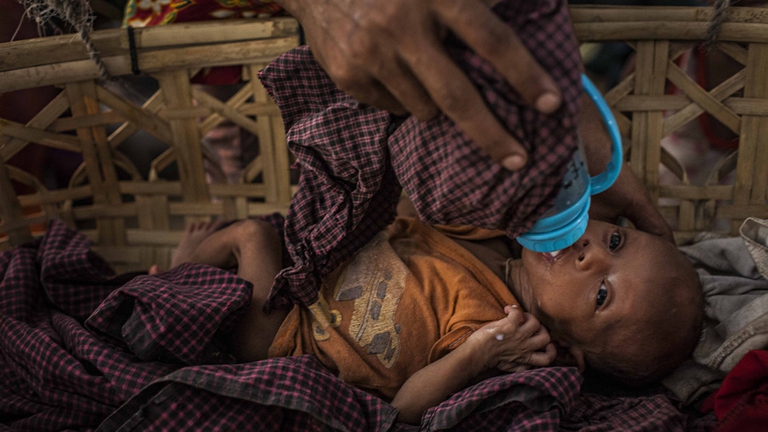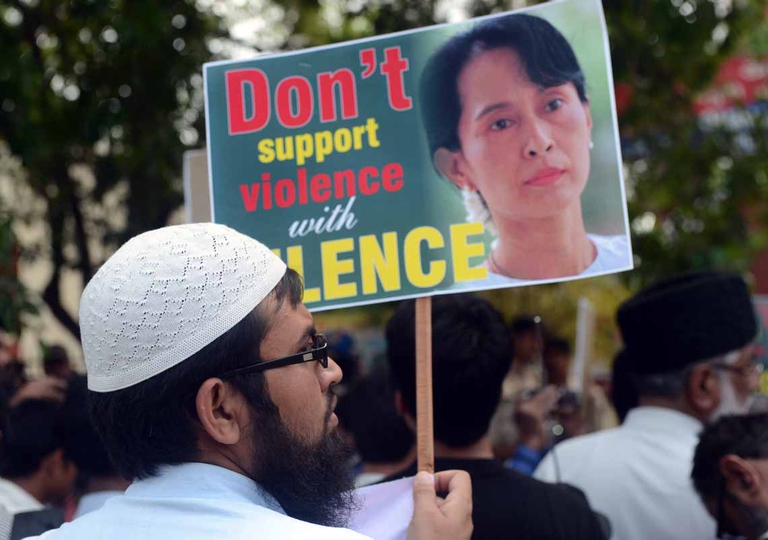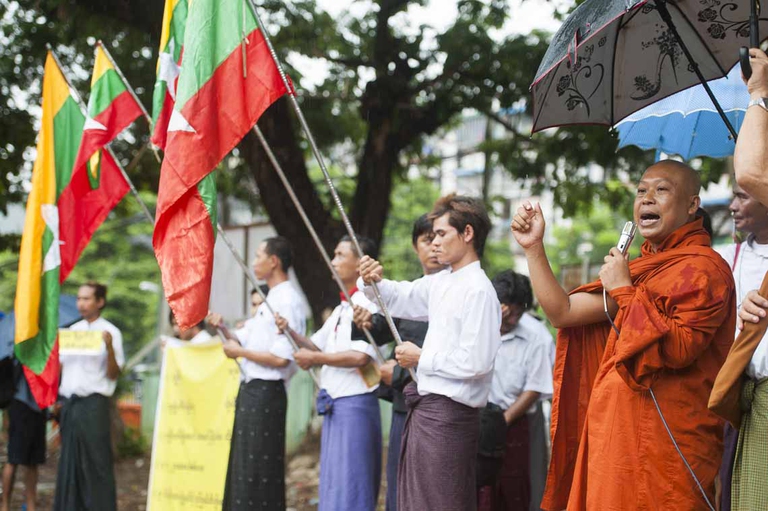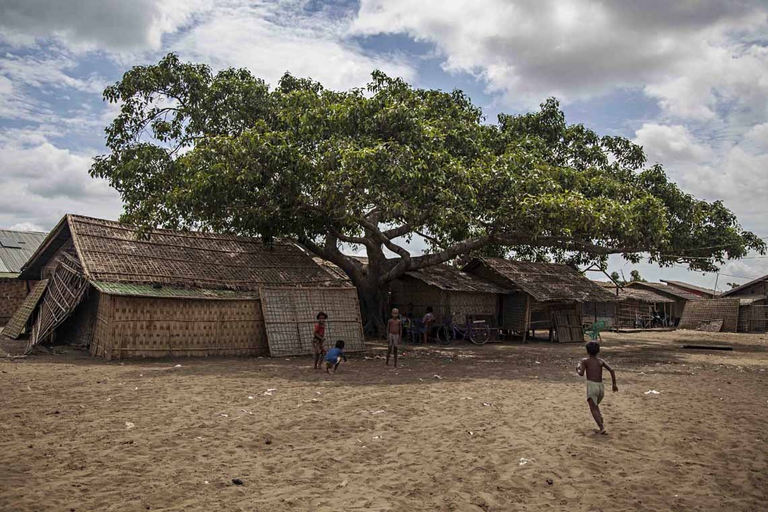
Costa Rica celebrated its first same-sex marriage when two women, Alexandra Quiros and Dunia Araya, celebrated their wedding: an “extraordinary moment”.
Phil Robertson of Human Rights Watch says that ethnic cleansing was pursued against Rohingya Muslims. And Aung San Suu Kyi also has responsibility.
Starved. Left without education. Used as slaves. Detained without trial. Abused and threatened. Killed by racist squadrons. Deprived of documents and the right to vote. Obliged to obtain special permission to be treated or give birth in hospitals, with the consequent death of pregnant women and newborns due to “bureaucratic delays”. Rohingya Muslims’ is a story of constant exclusion in Myanmar, where Bamar people, the dominant ethnic group, is Buddhist. The country told it’s on its way towards democracy, but continues to deny this ethnic minority citizenship and impose an apartheid regime to it.
The latest UN report, signed by High Commissioner for Human Rights Zeid Ra’ad Al Hussein, talks about “systemic discrimination” and “ongoing human rights violations” that may be more seriously judged in the future as “crimes against humanity”.
The Rohingya face persecution since 1962, when the Burmese military junta took power. From 2010 to today, exactly during the so-called democratic transition, persecutions worsened. In 2012 minority communities of Rohingya Muslims that live in the western state of Rakhine (once Arakan) were attacked by Buddhist extremists: their villages were razed to the ground, hundreds were killed and tens of thousands were dispersed. In 2015 the Bay of Bengal and the Andaman Sea became the scene of a migration crisis, managed by human traffickers. Today refugees in the squalid camp of Rakhine (in the Burmese territory) are estimated to be 130,000, in Malaysia are more than 53,000, and about 370 Rohingya Muslims and Bengalis died in shipwrecks. Other exiles disappeared.
The Western world celebrated the crushing victory of the National League for Democracy last year. It exulted at the election of Htin Kyaw as President and of historical leader Aung San Suu Kyi as Minister of Foreign Affairs. However, the Western world itself has difficulty in accepting the dark side of these elections. Champion of democracy Aung San Suu Kyi, the icon of the opposition against Myanmar’s military junta, continues to ask for time and space and for this reason she has been criticised by human rights defenders. In 1982 the junta made a law that granted citizenship to 135 ethnic groups, except for Rohingya people. Today over a million people is “invisible” to the State that improperly considers Rohingya Muslims as “illegal migrants” and “Bengalis”. However, even in Bangladesh, the Rohingya aren’t accepted. The only place where they can live at the moment is the ghetto.
Phil Robertson, deputy director of Human Rights Watch’s Asia division, insists that ethnic cleansing as well as crimes against humanity have been perpetrated against the Rohingya. Robertson restates in this interview what HRW already reported in a dossier of 22 April 2013.
What happened after the release of your 2013 report? Have Rohingya’s conditions worsened or have they shown signs of improvement?
Unfortunately, there have been few signs of progress. The latest UN report properly highlights that systemic discriminations and human rights violation against the Rohingya continue every day; that they remain isolated and don’t have access to an adequate amount of food, health services, means of sustenance, education and other basic services. The only significant change was the revocation of the emergency state that was imposed in the entire state of Rakhine following the attacks of 2012. But local ordinances and restrictions prevent the Rohingya from enjoying fundamental rights, including the freedom of movement. The UN report mostly blames the continuous and arbitrary use of power at hands of police officers and security forces to arrest, blackmail and abuse the Rohingya, with no reasons. This demonstrates once again that the international community is the only hope to cope with this intolerable situation and ask the government of Myanmar to take action.
Would you define this as a stalemate?
No, rather, the Rohingya are segregated, confined and abused because they can’t leave refugee camps and their villages. They are held hostage by a discriminatory policy that treats them as if they aren’t human beings. These restrictions resemble those the white South African government used during apartheid in the bantustans. Where is the international indignation now? Why doesn’t Rome take on the responsibility of asking the European Union for justice for the Rohingya?
Aung San Suu Kyi banned the term Rohingya and asked for more space to face the situation: is this a cautious or a wrong policy?
Aung San Suu Kyi is basically making a mistake in banning the name “Rohingya” and asking Yangon diplomats to do so. Every community of people on Earth has the right to decide how they want to be identified. The fact that Suu Kyi denies this right is a shame for the Government of Myanmar as regards human rights. It’s time for diplomats to be courageous, to publicly tell her she’s making a mistake and that this policy will make it more difficult – not easier – to solve the situation in the state of Rakhine.
Why is it important to tell the truth and use the best words to improve the humanitarian situation?
HRW condemned the crimes against humanity as well as the ethnic cleansing perpetrated against the Rohingya in June and October 2012. These terms are both relevant to the current situation in Rakhine. The international community shouldn’t mince the words. If we don’t speak clearly, the Government of Myanmar will continue to think it can use diplomacy to get around the problem without being responsible for the crimes perpetrated by the governmental forces.
Siamo anche su WhatsApp. Segui il canale ufficiale LifeGate per restare aggiornata, aggiornato sulle ultime notizie e sulle nostre attività.
![]()
Quest'opera è distribuita con Licenza Creative Commons Attribuzione - Non commerciale - Non opere derivate 4.0 Internazionale.
Costa Rica celebrated its first same-sex marriage when two women, Alexandra Quiros and Dunia Araya, celebrated their wedding: an “extraordinary moment”.
On top of a 2.4 million dollar compensation, the indigenous Ashaninka people will receive an official apology from the companies who deforested their lands in the 1980s.
From Italy to the United States, workers in the logistics and delivery sectors are protesting to demand better sanitary conditions to protect themselves from Covid-19.
The pandemic and its restrictions are affecting everyone, without exceptions. However factors like housing, income inequalities, gender, access to technology and working conditions are influencing how people experience the health crisis.
In the midst of India’s coronavirus lockdown, two dozen people lost their lives in a desperate bid to return home: migrant labourers forced to leave the cities where they worked once starvation began knocking at their doors.
Apple, Dell, Microsoft and Tesla are among the tech companies named in a lawsuit brought in the US by the families of children killed and maimed in cobalt mining activities in the Democratic Republic of Congo.
We, the people is Survival’s 2020 calendar, which features the winners of the photography contest showcasing images of the world’s indigenous peoples.
Un violador en tu camino – the rapist is you – is an anthem protesting the impunity of gender-based violence. It began in Chile and has become a global flash mob, bringing people to the streets and resonating all over the world.
Abiy Ahmed was awarded the Nobel Peace Prize for reaching peace with Eritrea. Yet, Indigenous groups in Ethiopia’s Lower Omo Valley have been abused by security forces, a fact that the prime minister must address, says the Oakland Institute.











